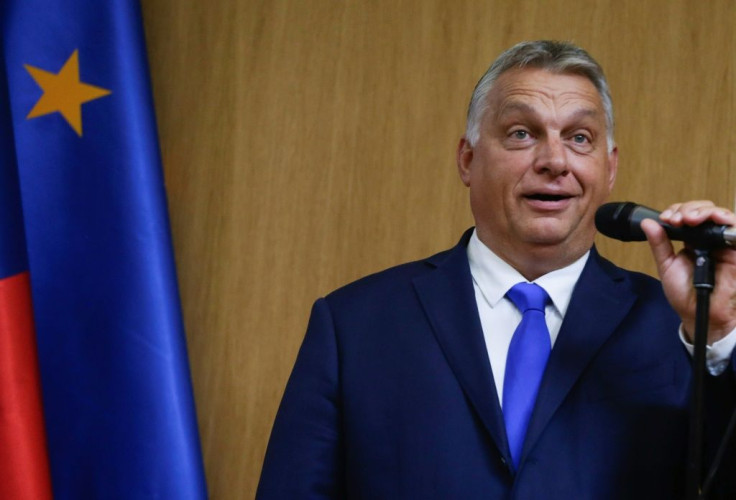Hungary-Poland Axis Shows Strain Over EU Budget Veto
Hungarian Prime Minister Viktor Orban said Friday that he would continue to block the EU's budget and coronavirus recovery fund over rule-of-law criteria, although his veto ally Poland signalled a possible compromise.
Budapest and Warsaw last month blocked the EU's 1.8-trillion-euro ($2.1-trillion) budget and coronavirus rescue package over its tying of funds to respect for the rule of law.
Both governments are accused by Brussels of rolling back democratic freedoms, notably judicial independence in Poland and press freedom in Hungary.
Polish Deputy Prime Minister Jaroslaw Gowin said Thursday that Warsaw could yield if a document is attached to the rule-of-law regulation to clarify how the criteria are applied.
Orban dismissed the idea and insisted Warsaw and Budapest have agreed to hold out on separating the funds from any rule-of-law conditionality.
"For us such a solution... that some kind of statement is attached to it, like some kind of reminder note pinned to a placard, will not work," Orban said in a state radio interview.
He added that "the Poles cannot back out of the veto" after signing a deal with Hungary last week.
In a joint declaration signed after talks in Budapest, Orban and Polish counterpart Mateusz Morawiecki proposed decoupling EU payments from the row over the rule of law.
But Gowin said that Poland now wants certainty that the link between money and the rule of law only applies to issues related to transparent and fair use of EU funds.
A "binding interpretive declaration" from Brussels on the rule of law conditions could be enough to clinch a compromise, he told Polish media.
A Polish government spokesman Piotr Muller later appeared to contradict the remark by insisting that Warsaw "maintains its position in its entirety" with regard to the disbursement of EU funds.
"Only provisions consistent with the treaties and conclusions of the European Council are acceptable to Poland. This is also clear from the joint declaration of Poland and Hungary," said Muller in a Twitter message.

Orban has portrayed the rule of law criteria as "blackmail" against member states opposed to immigration, and insisted Friday that it was the planned mechanism, not Hungary, that was holding up the package's approval.
"We can agree on the financial package but not on the political questions arising from the rule of law decree criteria attached to it," said Orban.
"As we must not waste time...the two things should be separated," he said.
Leading Brussels politicians have shown little appetite for giving into the Polish and Hungarian demands in the run-up to a crunch EU Council summit next week.
"Of course we will not surrender to a veto. This should be very clear to Hungary and Poland," said Paolo Gentiloni, EU economy commissioner.
"We are very clear towards these member states that we will go on without them. But I am confident that we will, at the end, make the agreement happen," he said.
Pressure on Orban grew this week also came from an unexpected direction as a close ally, and co-founder of his ruling Fidesz party was embroiled in a sex scandal in Brussels.
Belgian police said Tuesday that it caught the MEP Jozsef Szajer, 59, fleeing an illegal sex party last week while in possession of ecstasy.
Szajer, who was the main author of Hungary's new ultra-conservative constitution after Orban came to power in 2010, resigned two days before the scandal erupted citing only "personal reasons".
Critics at home and abroad say the affair shows the moral hypocrisy of Fidesz, which paints itself as a Christian conservative party based on traditional pro-family values.
Orban said Friday a "malicious interpretation" of the scandal as orchestrated by Brussels is "imaginable...especially when it comes to the Germans, but we can't rule anything out".
But he added that he had not seen any evidence to link the scandal to the budget debate.
© Copyright AFP 2024. All rights reserved.





















